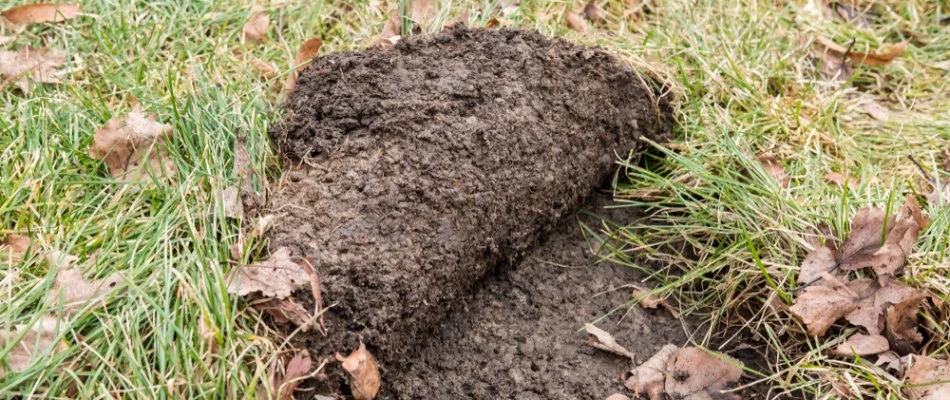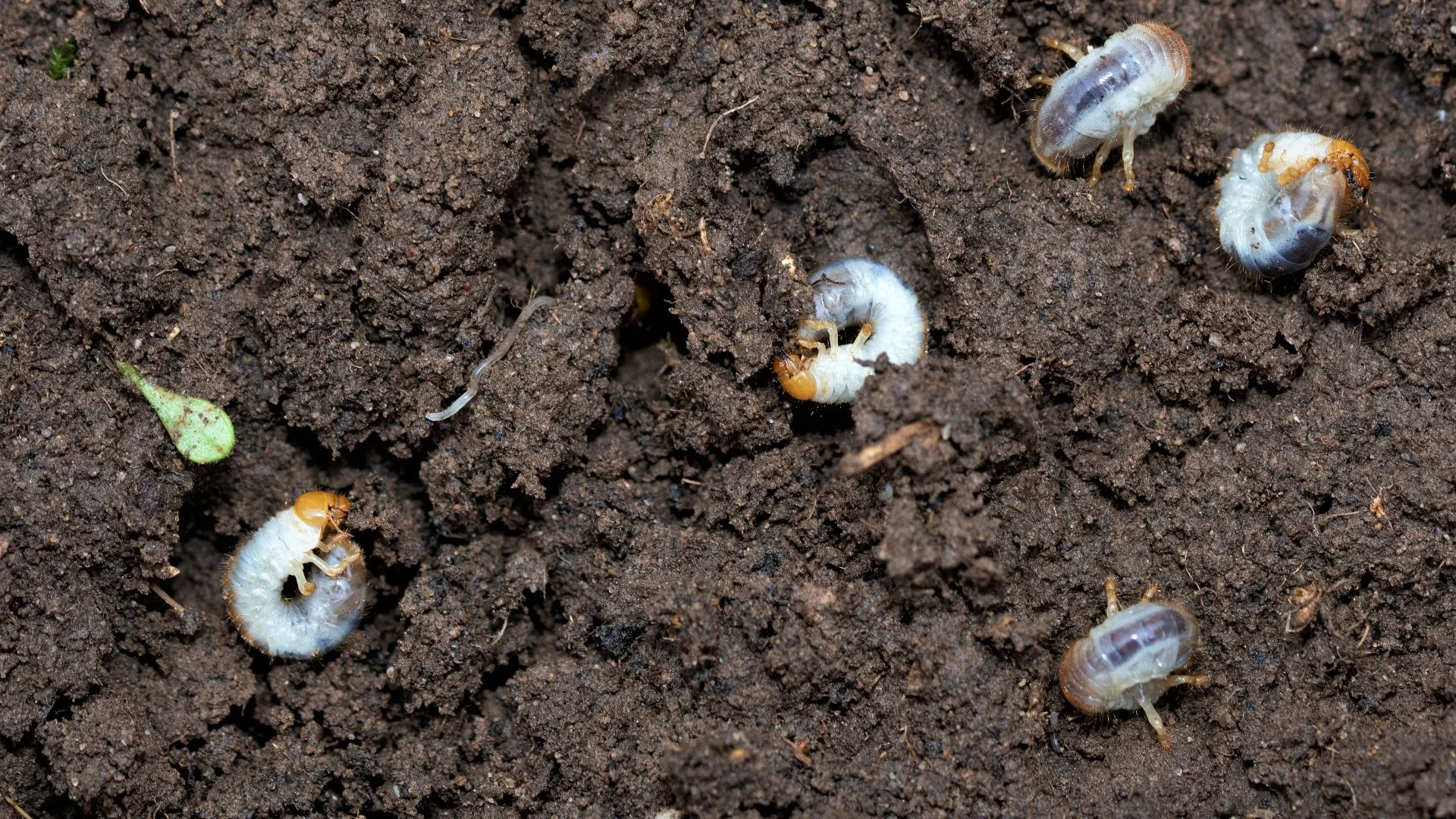If you want your lawn in North Carolina to be grub-free this year, be sure to invest in preventative grub control! Preventative treatments work by targeting grubs shortly after they hatch and before they're able to reach maturity and cause damage to your lawn. To ensure these types of treatments are effective, they must be applied between June and July while the grubs are newly hatched. If you skip a treatment, however, grubs can quickly infest your lawn, feed on the roots, and cause damage. You'll then need to invest in a curative treatment to eliminate them and lawn care services to help your lawn recover from the damage!
How do preventative grub control treatments work?
If you're looking for a proactive approach to controlling grubs, preventative grub control treatments are your answer! These treatments target grubs in the early stages, soon after they hatch in your soil but before they have the chance to reach maturity. This is because as soon as they hatch, they come into contact with the treatment and are affected by it. Targeting grubs at this time in their lifecycle is essential because it eliminates the grubs before they can cause damage to your lawn. However, for preventative treatments to work effectively, they must be applied at the time of the year when grubs are still in this early stage.
When should preventative grub control treatments be applied?
To ensure your preventative grub control treatments work effectively, they must be applied at the right time. These treatments target grubs in the early stages and need to be applied before the grubs mature. Grubs will begin to hatch in June and July and quickly feed on the roots of your grass. For this reason, you want to get a preventative grub control treatment down on your lawn by early June/July to target those newly hatched grubs. This will ensure the grubs are eliminated before they reach maturity, which is when they're more difficult to eradicate.
What happens if you skip a preventative grub control treatment?

To maintain control over grubs, it's always best to keep up with preventative grub control treatments. Skipping a treatment could lead to serious problems for your lawn. For example, grubs could infest your lawn and kill the grass as they feed. If this were to happen, you would then you would need to schedule a curative treatment to eliminate them. After eliminating them, you might also need to invest in lawn care services to help your lawn recover from the damage. Some of those lawn care services might include lawn fertilization to provide your grass with the nutrients it needs to recover, core aeration to ensure the roots can easily receive those nutrients, and overseeding to help fill in bare patches where grubs might have killed the grass.
Reach out to us to schedule our grub control service.
When you schedule our grub control service, our team at DalaCasa Landscape Management will apply a preventative treatment between June and July to target the newly hatched grubs. If grubs are already present, we will apply our curative treatment to eliminate them! We also offer various lawn care services to help your lawn recover from the damage the grubs caused. We offer this service to commercial and residential properties, as well as HOAs, in Charlotte, Waxhaw, Concord, Rock Hill, NC and nearby areas, including surrounding areas in South Carolina! Reach out to us today at (704) 248-6294 to sign up!



Comments (0)
Thanks for your comment!
Thanks for your feedback! Your comments have been successfully submitted! Please note, all comments require admin approval prior to display.
Error submitting comment!
There is a problem with your comment, please see below and try again.